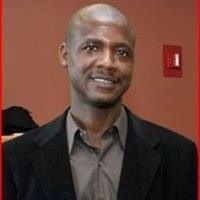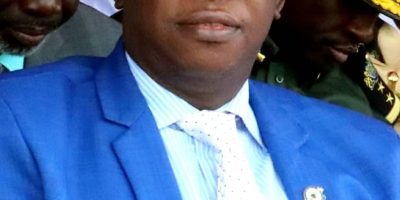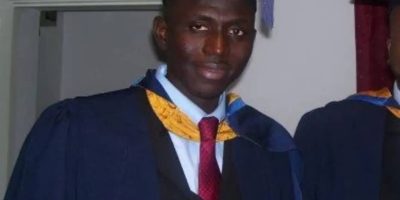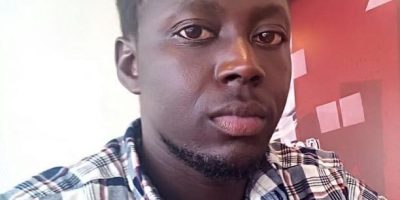Alagi Yorro Jallow
 Fatoumatta: On December 4, 2021, the Gambia is earmarked to fulfill a central tenet of the democracy we have come to believe so strongly. We need to be more informed, more vigilant, and more accountable to ourselves to beat any form of pre or post-election violence on the presidential polls. The beauty of democracy is that it is not deserved but earned. The only Rubicon to be crossed is through hard work, commitment to national values, and an unyielding willingness to have every citizen believe in the lifeblood of genuine democracy. December 4, 2021, the Gambia decides. Whatever the choice that the people of this republic shall make, we only hope it will not destroy Gambia’s sovereign brand.
Fatoumatta: On December 4, 2021, the Gambia is earmarked to fulfill a central tenet of the democracy we have come to believe so strongly. We need to be more informed, more vigilant, and more accountable to ourselves to beat any form of pre or post-election violence on the presidential polls. The beauty of democracy is that it is not deserved but earned. The only Rubicon to be crossed is through hard work, commitment to national values, and an unyielding willingness to have every citizen believe in the lifeblood of genuine democracy. December 4, 2021, the Gambia decides. Whatever the choice that the people of this republic shall make, we only hope it will not destroy Gambia’s sovereign brand.
Marriage of convenience for practical reasons or marriage by force is a night of sleep with the enemy, a snake in the handbag. Struggling with political impotence. The Gambia’s new democracy was forcible wedlock or marriage of convenience conducted in a ‘laaheedo’; of 2016 Opposition Party Coalition’s Memorandum of Understanding (MoU) we called it “Aarranged union of marriage,” which we prayed would result in “peace and prosperity” and would “last forever.” However, we could not have been right. No arranged or forced marriage has ever truly worked to the satisfaction of the parties. A ‘continuum of coercion’ is the tonic that sustains forced, involuntary unions. However, is it not said that hundreds of tiny threads of love, not chains, hold marriages together? You can renegotiate a union of crises to one of peace and prosperity. However, unworthy husbands are always afraid of the wisdom of their wealthy wives and children. They resist and ban family conferences and enthrone a dictatorship of the privileged weak. The Gambia does need a new elite cultural hegemony.
Fatoumatta: I am not a Marxist, but I am deeply intrigued by the thoughts shaping or seeking to explain the socio-political and economic philosophy. Antonio Gramsci, the Italian Marxist philosopher and socialist politician who died at 46 in 1937 propounded the theory of “cultural hegemony” to explain the societal order in a capitalist society. He said the state and ruling capitalist class — called the ‘bourgeoisie’ — use cultural institutions to maintain power. They develop a “hegemonic culture” using ideology to propagate their values and norms. These become the “common sense” values of all. The status quo is thus entrenched and maintained.
Let us come back to the Gambia. If you are very attentive, you will notice that the country’s powerful socio-political groups and mighty opinion leaders hardly raise issues about infant mortality, maternal mortality, access to clean water, sanitation, quality education, corruption, and other indices affecting the well-being of at least ordinary Gambians.
Fatoumatta: Let us go back to Gramsci. He talked about the ‘bourgeoisie’ maintaining hegemonic values and norms to keep their hold on power; I would replace the ‘bourgeoisie’ with the ‘Gambian ‘tangal cheeb’ elites.’ The average member of the Gambian elite class sends his children to schools abroad, has a borehole in his house, is well protected by the police, flies to the US or UK for medicals, and has a generator to bridge the power gap. The children are guaranteed jobs at corporate institutions and banks. It is just a phone call away. The governor, the minister, the DG, and the MD are his friends. He could be the governor, the commissioner, the minister, the DG, or the MD. It is their country.
Fatoumatta: The Gambia does not need a new cultural elitist cultural hegemony. I often imagine how terrific our Gambian emergent democracy would be without the mean appetites of ego-mongering ‘tangal cheeb’ politicians, land grabbers, tribal Mansa’s, and green-eyed power brokers. However, most African countries have suffered political decay due to the leaders’ absence of adorable political character. These emerging democracies will not survive long without good leaders that can be emulated. Since we could not promulgate a new Third republican constitution in the Gambia, Heaven knows we are happy to have the 1997 constitution. From December 4 Presidential election polls onward, the rogue National Assembly members have had their arbitrary power nipped in the bud.
Truth knows that we each wish for a mint of gold. Therefore, I would hold it that the natives of this nation would embrace the constitution as it is, and have it thus fully implemented and incessantly solemnized with honor and the vow of death, with pomp, dance, and chance; that with that declaration, like the rest of the world, no other statement shall be survived among men as ever the greatest then this. The constitution of the Gambia is now all we have as the sure instrument to deal the old political culture a death blow. The December 4, 2021, presidential epoch of a defining presidential election comes when our political discourse has become so sharply polarized along tribal, class, and to some reasonable extent, religious lines.
Thus far, the three presidents who have ruled the Gambia since independence have engineered great economic injustices that will remain painful scars in the flesh of our country. They funned tribal warfare for selfish gain, filled national public offices with their childhood friends and village cronies, and soiled their hands with human blood that they took for political reasons. The successive governments have robbed the people of high-quality education, grabbed all public land, weakened institutions with accountability mechanisms, and did their best to stall meaningful national reconstruction. National and generational circumstances forced the third government to embrace and endorse the new constitution. However, lawmakers shot down the 2020 Draft constitution. This is evident from how they are dragging their feet at implementing what reflects citizen’s preferences. They had a magical chance, making the 2020 Draft constitution disappear from the earth’s surface.
The Gambia is filled with ‘boring’ politicians. So boring are the politicians that most of them have nothing intellectually stimulating to offer the world. Save for a few honorable names from the PDOIS leadership like Sering Dara Halifa Sallah, Seedia Jatta, Samuel Osseh Sarr, and the majority of the remaining, complete the diminishing circle of national irrelevance. Imagine the likes of Dindinding Mansa, Domorifoday, BoyBairaay, Babajalinding, James Bond, and their ilk. Are they known much for detestable things than not? So I am told some of those dozens of ‘Tangal Cheeb’ politicians and others who want to be President. They make me very worried.
Fatoumatta: The Gambia badly needs charismatic, sincere visionary, and transformational leaders with exemplary leadership qualities who can stand by their word. A leader capable of delivering speeches that will lift human hearts in dark times, speeches that can give hope in anguish, speeches that will refine the characters of men, inspired brave feats, give courage to the many who are weary, honor the distinguished patriots who have died in the field of battle and duty, and change the course of our national history. Suppose a president cannot inspire a nation and deliver distinguished memorable speeches. In that case, such can never be gladly remembered by posterity. However, unfortunately, these leaders have no style, substance, and impact in politics.
We must pray; good heavens, some of our ‘Tangal Cheeb’ politicians have been in politics for decades and other new entrants in our politics of the lamb. Only God knows how they have been serving humanity. However, they remain the agents of election apathy even to their constituents. For instance, Dindinding Mansa, Domorifoday, Dembo, James Bond, and Babajalinding have politics. Some of them served in every political appointment since the first republic, remaining poverty-stricken, backward, and god-forsaken. However, the “distinguished people’s representative and lead counsel” wants to be President of The Gambia. How sorry that ambition is. Then some are known for nothing other than embezzling government money. Ah me! Did fate have to be this generous to the Gambia with a package of awful leaders? It worries any nation when leaders doze off in Parliament Cabinet sessions and international conferences in broad daylight. My South African friend Kyle Steven captures it in excellent graphical terms in his poem In the Night of sleeping politicians:
“In parliament
the God of debate
fails to cross the divide
of rich and poor
In the laager
the God of revenge
flickers around tv screens
In the kraal
the God of small beginnings
shakes itself, begins to stir again
In the night
the God of the ancestors-holds peace.
They meet cheek to cheek, and wonder why”.
Fatoumatta: The Gambian, some of our noisy ‘Sosalasso’ politicians are like prostitutes at the political temple and engulfed in the night. They shift from party to party and swing from one standpoint to another, devoid of an ideological basis. They are there merely to make money by luring the less firm people who are not faithful to national values. This time, in these presidential elections, we have a chance to decide and depart from nebulous political positions. Let us make it an ignominious vote that will relegate the graft-masters and their scions to the backwaters.
In Africa, we know that a man rises on the shoulders of his relatives. So if, in the end, we have corrupt members of parliament, incompetent Municipal Mayors/Chair[ersons, and redundant Godfathers, then we have ourselves as relatives for culpability. However, to hope that we can vote in the same clique of looters and hope for inspirational leadership require more than Panglossian optimism. Let us come out in sufficient numbers and waste those insignificant fellows. They utter dangerous nonsense with total impunity in the name of politics and make sure that politicians start talking sense for once. We must keep our heads above the ethnic waters to forge a prosperous and democratic future for the Gambia in an economically strategic, albeit impoverished, and politically polarized member-state in the West African sub-region,
Fatoumatta: These tangal cheeb politicians have their own ‘institutions’ controlling our thoughts and shaping public discourse to maintain this societal order. In their corner, they have a legion of professors, journalists, activists, and elderly politicians who direct public discourse in a way that not only maintains the status quo but also diverts our attention from critical issues that matter to the ordinary Gambians. This is because they are so powerful, and they always succeed in reproducing themselves among the ordinary Gambians. Go on social media. The patterns of debates are influenced by this hegemonic ideology built on ethnoreligious and regional sentiments, unconnected to the urgent existential needs of Gambians.
Are we in a hopeless situation? I would not say so. Instead, we need a new class of thought leaders in the media, academia, civil society, and polity to focus public discourse on the things that matter the most.
Why can’t we also spend some of our energies demanding water, education, healthcare, power, and security — which most Gambians agree on? Inevitably, the rich and the poor will benefit. National productivity will increase. This will ensure social stability. The elite class needs to be far-sighted enough to connect its interests with those of ordinary people.
Fatoumatta: The Gambia does not require a new cultural elite hegemony. The Gambia’s greatest tragedy has its first successive three presidents. The latter sat on their hands and did nothing to reverse historical injustices and related atrocities committed against Gambians of average means. Enough of the ecclesiastic patience that Gambians seem to have ably mustered; it is time for expeditious shifting into progress. The present generation of leaders will be painfully remembered for having handed nothing to posterity except the memories of greed. For once, let us abandon armchair revolutions and boardroom politics that culminate in less-eloquent choreographed chest-thumping press conferences. If we do this, we shall eternally shame the politicians who are prostitutes in the temple of politics.
Gambians Do Not Need Cultural Hegemony and The communicative Power of the Gambian (Tangal -Cheeb) Elites






Ma sha Allah great and thanks for sharing